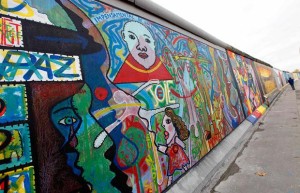By Māra Braslava
Managing Editor
Once I was talking to a newly met fellow student form UCR. W hen I said that my home country is Latvia, after having asked the usual question whether I speak Russian, the student told me she has a friend from Moldova. I was rather puzzled and struggled to understand what I have to do with the fact that someone has a friend from Moldova. Of course, Latvia and Moldova are both in Eastern Europe and even more – both countries were once part of the USSR. Yet, is it important now, more than 20 years after the dissolution of the Soviet state?
hen I said that my home country is Latvia, after having asked the usual question whether I speak Russian, the student told me she has a friend from Moldova. I was rather puzzled and struggled to understand what I have to do with the fact that someone has a friend from Moldova. Of course, Latvia and Moldova are both in Eastern Europe and even more – both countries were once part of the USSR. Yet, is it important now, more than 20 years after the dissolution of the Soviet state?
Already a while ago The Economist highlighted that the term “Eastern Europe” does not make sense – neither geographically, nor politically or economically. Having been a part of the socialist system is only a single common fact Moldova, Latvia, Hungary, Czech Republic or any other country in the Eastern and Central Europe share. Not all of them were even part of the Soviet Union, some retained independence as satellite states and others like Yugoslavia were entirely unaffiliated with Moscow.
After the end of the Cold War, all these countries took very different paths and underwent diverse political and economic transformations. What do the political systems of, for example, Estonia and Belarus have in common? Saying that instability and high corruption levels are a distinct characteristic of Eastern European governments is also false –take a look at the latest report on corruption in the EU, which showed that no area in the EU is entirely free from corruption and the list wasn’t even led by the more seemingly susceptible new EU member states.
Even greater are the historical and cultural differences between various parts of the former socialist union. Calling all these countries Eastern European and assuming a fundamental sameness is completely absurd. Yet it is done so often in many places and UCR is not an exception. I remember going on a trip to Budapest with other UCR students and one of them saying “these people look Eastern European”. What exactly is meant by calling someone Eastern European and why is it so telling? Is it merely ignorance or a stigma of Eastern Europe that is so profoundly embedded in people’s minds? “Western European” is never used in the same way. I don’t tell someone from Sweden that I have a friend in France.
I individually feel little connection with my country’s Soviet past as I was born in the early 1990s, and I have never experienced living in the USSR or behind the iron curtain. This part of history is undeniable but it has not been a major factor in shaping my identity. Surely it has left a strong heritage but other periods of history have as well. The diverse paths these countries are taking now is a proof that the around 50 years of forced “togetherness” have not erased the different histories of the Central and Eastern European states.
It struck me here that all people from Europe’s former socialist countries are labeled Eastern European and assumed to be in some or other way distinct merely because of coming from outside the Old Europe. Most surprisingly this “us and them” or “Eastern and Western European” division is still profound among people of my age, who just like me have never experienced the Cold War.
This November, Europe will celebrate 25 years since the fall of the Berlin Wall in 1989 that made possible the re-unification of the continent which was divided during the Cold War. Since then Europe has been heading towards integration and the former socialist parts of Europe have seen enormous political and economic changes. Nevertheless, to get rid of the iron curtain in people’s minds appears to be the most difficult change. Isn’t it time to finally overcome the Cold War?
Māra Braslava, Class of 2014, is a Politics and Sociology major from Limbaži, Latvia.
